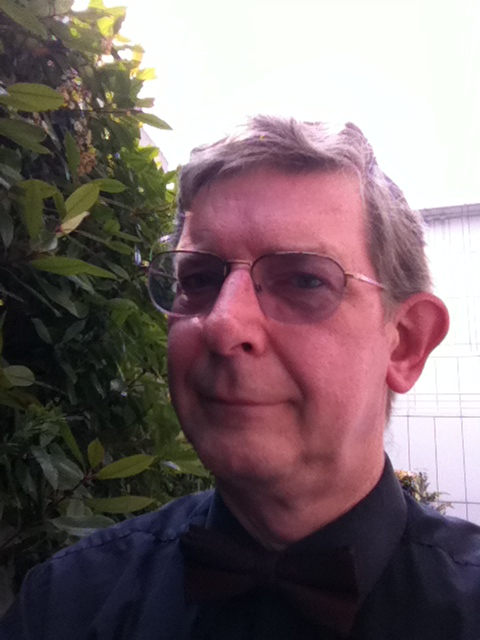
1. We last touched based in July of 2016. What has changed since then?
My daughter Yifan is now 17, and everything at home is geared up to her – tuition, homework, going to University open days. She hasn’t got much of a social life, so neither have we.
2. There has been four books you have written for your step daughter in the Worlds of Yifan series. Is there a fifth coming and will the strife in Hong Kong influence it in any way?
I finished the fourth and last book of the Worlds of Yifan series, Teal’s World, whose hero is Shen Teal, Yifan’s male counterpart in another World. There won’t be any more in the series, because it was getting more and more adult in tone and content. Considering that part of Teal’s World deals with the bureaucracy of running a space station, I think I’ve reached the limit of what younger readers would be able to stomach! So, the situation in Hong Kong isn’t relevant to the series. It is, however, of interest to me. I used to believe that President Xi was a progressive, that he was rolling out democracy in the PRC, building on the legacy of Deng Xiao Ping; but I’m sadly disappointed. I would have to do a whole shed-load of research if I was to adequately cover the HK situation, even in Other-Worlds fiction, and I don’t think it would be an entertaining read.
3. You touched on the rich traditions of Chinese culture in our last interview. What aspect of Chinese culture before the cultural revolution do you find most intriguing or inspirational?

China’s ordinary people have always lived beneath a yoke. China was an Imperial society for over 1,000 years, and a totalitarian Communist state since the end of Japanese rule after the second World War. And yet the people made themselves comforts and traditions, as people will do, in their philosophy, their religious observances, their art and their food. The advantage to their rulers is that the Chinese people are truly patriotic, very willing to be led, very hard-working. The disadvantage of that for the Chinese people is that they cannot rise beyond a certain point without being rich or talented, or (when in any position of authority) willing to be bribed. I blame Confucian philosophy for this. It (as the Mediaeval Church did in Europe) convinced the mass of the people that rulers deserved to rule by divine right, and peasants were ordained to their roles as servants of the nobility. The Communist Revolution almost managed to upset this, until Mao took control and dropped China back into the Middle Ages again. As such, I’m interested in how Chinese people fare in the wider world, outside mainland China, and in the period towards the end of the Qing dynasty, where China was ruled (in effect) by a woman.
4. If you were to write about another culture, what do you reckon it would be?
I’m still interestedin Asian cultures, but know very little about those other than China. I have some African characters, but I have to do a lot of work to understand them, and run them past friends from those cultures. It’s quite nerve-wracking to do that. In my WIP (The House Party) I have Romany characters – I am an ‘honorary’ Romany – who (as they will do) pretty much took over the book as soon as they appeared. I think they may return.
5. Tell us about The Technical War series and how it is different and similar to Worlds of Yifan?
The Technical War is set on an alternate Earth. Shen Aoyun is the Yifan character, and in the first book (Lucifer’s Children) she is vampirised at the age of seventeen in Shanghai. The story began as a homage to the traditional vampire novel, set in a Victorian-style society, but technological behind the scenes. Here, vampires, ghouls and werewolves are not quite what they seem. As my books go, it is quite ‘straight’, the characters didn’t go so far off-plot as usual!
The similarity to Worlds of Yifan is of course in the characters. Little Yifan (from The Tower) appears in the second book (WIP, The House Party, still stuck around 90,000 words), as does Fat from Teal’s World. But this series is adult, and darker, with some violent scenes that were really fun to write. There is, of course, still a lot of humour.
The House Party started as my take on the English classic ‘Country house mystery’. But the characters have minds of their own, and have rather run away with the plot. I’ve found it quite difficult to keep up with them; but I have to say, they are doing quite well. If they could use the keyboard, I could just sit back and relax, but alas….
Bonus question: I’ve been on a diet lately. Do you have any suggestions for healthy eating? Or favorite recipes?
The biggest problem nowadays is obesity, which has its roots in the demonisation of fat in the 1970s and the subsequent rise of ‘low fat’ products containing high levels of carbohydrates, particularly sugar. Fat provides flavour, and more importantly there is a ‘fat switch’ in our bodies that turns on when we’ve eaten enough. There’s no such switch for carbs, so we can eat starches and sugars till they come out of our ears. So, don’t avoid fat. It doesn’t ‘make you fat’, it is delicious and it keeps you away from carbs.